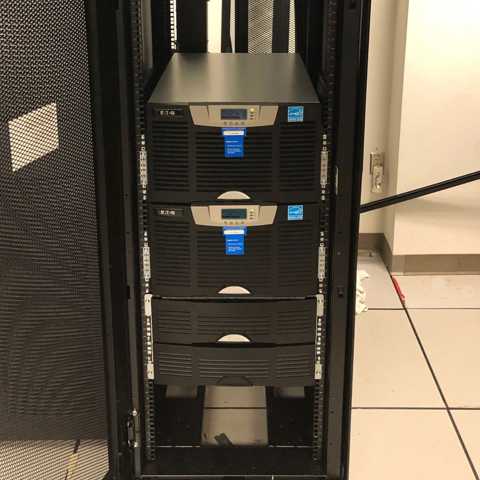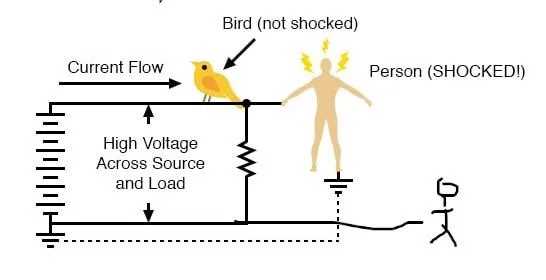وهي بطاريات حائط أفضل أو رف خادم?
عندما تقرر الاستثمار في نظام تخزين طاقة البطارية (بيس) لمنزلك أو عملك, أحد القرارات العملية الأولى التي ستواجهها هو اختيار عامل الشكل. الأنماط الأكثر شعبية أنيقة, الكل في واحد بطاريات الجدار وجوانب قوية, بطاريات رف الخادم المعيارية. لذا, أيهما أفضل?
الحقيقة, لا هو "أفضل" عالميًا - يعتمد الخيار الأفضل تمامًا على احتياجاتك المحددة. غالبًا ما تكون بطاريات الجدار أفضل لأولئك الذين يعطون الأولوية للجمال والبساطة الكل في واحد لنظام المنزل القياسي الحجم. بطاريات رف الخادم أفضل لأولئك الذين يحتاجون إلى أقصى قدر من المرونة, قابلية التوسع, وغالبًا ما يكون التكلفة المنخفضة لكل كيلوواط ساعة لأنظمة الطاقة الأكبر أو الأكثر تخصيصًا.

في جيكس سولار, نقوم بتصميم وتثبيت كلا النوعين من الأنظمة. تكمن خبرتنا في مساعدتك على فهم المقايضات لتحديد الحل الذي يتوافق تمامًا مع مساحتك, ميزانية, وأهداف الطاقة. دعونا نستكشف بعض الأسئلة ذات الصلة حول معدات الطاقة المهنية.
لماذا رف جبل UPS أكثر تكلفة?
عند النظر في حماية الطاقة, ستلاحظ أن الحامل يركض (إمدادات الطاقة غير المنقطعة) الوحدات, التي تشترك في عامل الشكل مع بطاريات الرف, لديهم سعر أعلى من نظرائهم في البرج المستقل. لماذا هذا?
تعد أنظمة UPS الخاصة بـ Rack Mount أكثر تكلفة لأنها قطع متخصصة من المعدات المصممة للمطالبة, بيئة عالية الكثافة لرف المعدات. التكلفة المميزة ترجع إلى تصميم مضغوط, استخدام أعلى درجة, مزيد من المكونات التي تتحمل الحرارة للموثوقية الفائقة, إدراج أكبر من ميزات متقدمة مثل إدارة الشبكات والبطاريات الساخنة, وهم بناء ميكانيكي قوي, الذي يتضمن أجهزة التثبيت اللازمة.

الغوص أعمق: القيمة المصممة في معدات حامل الرف
إليك ما تدفع مقابله مع رف:
- الهندسة للكثافة: يعد تعبئة الإلكترونيات والبطاريات القوية بأمان في هيكل أفقي نحيف مع إدارة الحرارة بشكل فعال تحدي هندسي مهم يضيف إلى التكلفة.
- موثوقية المكون: غالبًا ما تكون البيئة داخل رف الخادم المعبأة أكثر سخونة وأكثر تطلبًا من مساحة المكتب المفتوحة. تم تصميم وحدات تثبيت الرف بمكونات عالية الجودة يمكنها تحمل هذه الظروف, ضمان الموثوقية اللازمة للتطبيقات المهمة للأعمال.
- الميزات المتقدمة كمعيار: غالبًا ما تكون الميزات المتوقعة من قبل محترفي تكنولوجيا المعلومات قياسيًا في نماذج حامل الرف. وهذا يشمل بطاقات إدارة الشبكة للمراقبة عن بُعد, شاشات LCD المعقدة للتشخيصات التفصيلية, والبطاريات الساخنة التي يمكن استبدالها يمكن استبدالها دون التسبب في تعطل.
- بناء قوي: تم تصميم الهيكل ومجموعات السكك الحديدية المضمّنة لدعم وزن الوحدة بشكل آمن في كثير من الأحيان داخل بنية الرف دون تراجع أو فشل.
هذا المبدأ المتمثل في دفع ثمن متخصص, تنطبق الهندسة الموثوقة على جميع المعدات المهنية, بما في ذلك الجودة العالية حوامل البطارية نستخدمه في GYCX Solar لبناء كبير, أنظمة تخزين الطاقة التي يمكن الاعتماد عليها.
ما هو عمر رف رف?
عندما تستثمر في رف الجودة, تحتاج إلى معرفة المدة التي يمكنك توقع أن تستمر فيها لتخطيط تكاليف الصيانة والاستبدال المستقبلية. من الأهمية بمكان أن نفهم أن هناك نوعان مختلفان للنظر فيهما: عمر وحدة UPS نفسها وعمر بطارياتها الداخلية.
ال وحدة UPS نفسها- الإلكترونيات, هيكل, والعاكس - هو قطعة متينة من المعدات مع متوسط العمر المتوقع 7 ل 10+ سنين. لكن, ال البطاريات الداخلية هي مكون مستهلك سوف يجب استبدال ذلك بشكل دوري. لرفع رف قياسي باستخدام حمض الرصاص المختوم (VRLA) البطاريات, عادة ما يكون متوسط عمر البطارية هو متوسط العمر المتوقع 3 ل 5 سنين.

الغوص أعمق: الإلكترونيات مقابل. المواد الاستهلاكية
دعونا نلقي نظرة على المكونين يو بي إس1.
طول العمر:
- أجهزة UPS: المكونات الإلكترونية مثل العاكس, شاحن, ولوحة التحكم مصممة لحياة خدمة طويلة. عادة ما يكون فشلهم في نهاية المطاف بسبب شيخوخة المكونات الإلكترونية مثل المكثفات.
- البطاريات (الاستهلاك):
- محكم الرصاص (VRLA): هذا هو نوع البطارية الأكثر شيوعًا في وحدات UPS التقليدية. إنهم موثوقون ولكن لديهم حياة محدودة 3-5 سنين. يمكن تقصير هذا العمر بشكل كبير إذا تم تشغيل UPS في بيئة ساخنة, وهو أمر شائع في رفوف المعدات المزدحمة بكثافة.
- ليثيوم أيون (لي أيون): بشكل متزايد, تتوفر نماذج MATT RACK RACK مع بطاريات الليثيوم أيون. في حين أن هذا يجعل UPS أكثر تكلفة بكثير, يمكن أن تستمر هذه البطاريات 8-10 سنوات أو أكثر, مطابقة بشكل فعال لعمر وحدة UPS نفسها وتقليل تواتر الاستبدال.
- صيانة: يعد استبدال البطارية المنتظم جزءًا طبيعيًا ومتوقعًا من الحفاظ على أي نظام UPS. تتميز معظم وحدات APC وغيرها من وحدات Rack Mount, خراطيش بطارية قابلة للتبديل ساخنة لجعل هذه العملية سهلة وسلسة, دون الحاجة إلى تعطل المعدات المتصلة الخاصة بك.
هل يجب أن تسير UPS في الأعلى أو أسفل الرف?
عند التخطيط لتخطيط رف المعدات الخاص بك, حيث تضع كل مكون مهم للسلامة والاستقرار. للحصول على قطعة ثقيلة من المعدات مثل حوامل الرف أو أ جبل رف البطارية نظام, هناك أفضل ممارسة واضحة.
يجب أن UPS دائمًا ما توضع في أسفل الرف. لأن وحدات UPS هي عادة واحدة من أثقل قطع المعدات في رف, تركيبها منخفضة يخلق مستقرًا, مركز الثقل المنخفض. إن وضع العناصر الثقيلة في الجزء العلوي من الحامل يجعلها ثقيلة بشكل خطير وزيادة بشكل كبير من خطر الالتفاف, والتي يمكن أن تسبب إصابة وأضرار معدات كارثية.

الغوص أعمق: "ثقيلة في القاع" قاعدة
هذه واحدة من القواعد الأساسية لتركيب الرف المهني:
- السلامة والاستقرار: السبب الأكثر أهمية هو الحفاظ على مركز الثقل المنخفض. تماما مثل مبنى أو مركبة مصممة بشكل جيد, الحامل المستقر هو واحد صلب في قاعدته. الرف الثقيل الأعلى هو خطر على السلامة الرئيسية, خاصة أثناء التثبيت, صيانة, أو في أي منطقة ذات نشاط زلزالي.
- سهولة التثبيت: وحدات UPS ثقيلة ومحرجية للرفع. من الأمان وأسهل بكثير للمثبتين أن ينزلقوا 100 رطل (45 كلغ) وحدة في مساحة U..
- التصميم المنطقي: التصميم النموذجي للرف هو أن يكون ثقيلًا, المعدات التأسيسية مثل وحدات UPS ووحدات البطارية الكبيرة في الأسفل, خوادم كثيفة في الوسط, ومعدات الشبكات الأخف وزنا مثل المفاتيح وألواح التصحيح بالقرب من الأعلى.
قصة GYCX الشمسية: "سواء كنا نقوم بتثبيت رف منه مع UPS أو واحد خاص بنا جبل رف البطارية أنظمة التخزين الشمسي, يتبع الفنيون لدينا دائمًا قاعدة "الثقيلة في القاع". أساس النظام الآمن هو مستقر."
ماذا يحدث إذا لم يتم تأريض البطارية?
غالبًا ما تسمع تلك الأنظمة الكهربائية, بما في ذلك أنظمة البطارية, يجب أن يكون "على الأرض." هل هذا مجرد مصطلحات تقنية, أم أنها ميزة أمان مهمة? ما يحدث فعليًا إذا لم يتم تأريض نظام البطارية بشكل صحيح?
إذا لم يتم تأريض نظام البطارية بشكل صحيح, هنالك لا يوجد مسار آمن مصمم لتيار خطأ للهروب إلى الأرض. في حالة حدوث دائرة قصيرة داخلية أو عزل عزل, غلاف المعادن للبطارية, العاكس, أو يمكن أن يصبح الرف تنشيطًا بشكل خطير في الجهد العالي. هذا يخلق شديدة خطر صدمة كهربائية تهدد الحياة لأي شخص يمسها ويزيد بشكل كبير خطر الحريق وتلف المعدات.

الغوص أعمق: التأريض ميزة أمان غير قابلة للتفاوض
يعد التأريض أحد جوانب السلامة الأكثر أهمية في أي تثبيت كهربائي:
- ما هو الأساس?: إنها علاقة مادية مباشرة بين المعدن, الأجزاء غير الحاملة للنظام الكهربائي (مثل الهيكل المعدني لعاكس أو خزانة بطارية) والأرض نفسها.
- كيف يحميك (خطر الصدمة): تخيل أن سلكًا يسرد داخل بيس ويلمس العلبة المعدنية.
- مع الأرض: يتدفق التيار الهائل على الفور عبر السلك الأرضي إلى الأرض, التي لديها مقاومة منخفضة للغاية. هذا التدفق الحالي الضخم سيقوم على الفور برحلة قاطع الدائرة أو تفجير فتيل, إلغاء تنشيط النظام وإزالة الخطر.
- بدون أرض: العلبة المعدنية الآن "LIVE" مع الجهد العالي, في انتظار طريق إلى الأرض. إذا لمسها, يمكن أن يصبح جسمك هذا المسار, مما أدى إلى صدمة كهربائية شديدة أو قاتلة.
- كيف تحمي المعدات (خطر النار): من خلال توفير مسار لتيار الصدع, يساعد التأريض على منع الأقواس الكهربائية وارتفاع درجة الحرارة التي يمكن أن تشعل الحرائق. كما أنه يساعد على حماية الإلكترونيات الحساسة من الأضرار الناجمة عن الكهرباء الثابتة والكهرباء.
- متطلبات الكود: التأريض المناسب ليس اختياريًا; إنه شرط إلزامي للقانون الكهربائي الوطني (NEC) في الولايات المتحدة ورموز كهربائية مماثلة في جميع أنحاء العالم. إنه مبدأ أساسي للعمل الكهربائي الآمن.
- وظيفة للمحترفين: يعد تصميم وتثبيت نظام التأريض الصحيح لنظام بطارية DC عالي الجهد معقدًا ويجب أن يتم ذلك بواسطة كهربائي مؤهل ومرخص. أنه ينطوي على تغيير حجم الأسلاك, نقاط الاتصال, والتكامل مع نظام التأريض الرئيسي للمبنى.
قصة GYCX الشمسية: "كل تثبيت شمسي GYCX يرتكز على أعلى معايير المهنية والرمز. يضمن كهربائينا المرخصون لدينا أن النظام بأكمله - من إطارات الألواح الشمسية إلى العاكس والبطارية - قد يكون أرض أمان قوية. بالنسبة لنا, السلامة ليست مجرد ميزة; إنه الأساس المطلق لعملنا."
إن الاختيار بين جدار الجدار ونظام بطارية رف الخادم يعود إلى موازنة احتياجاتك للجمال, فضاء, وقابلية التوسع. في حين أن المعدات المثبتة على الرف يمكن أن تكون أكثر تكلفة, يوفر تصميمها المهني فوائد كبيرة في الموثوقية والتنظيم. بغض النظر عن النظام الذي تختاره, يعد فهم الأساسيات مثل التوظيف المناسب وميزات السلامة الحرجة مثل التأريض مفتاحًا.
في GYCX Solar, تغطي خبرتنا كل هذه الجوانب. يمكننا مساعدتك في تحديد أفضل عامل شكل لاحتياجاتك وضمان تثبيته مع التزام لا هوادة فيه بالسلامة والمعايير المهنية. اتصل بنا لمعرفة المزيد عن حلول تخزين الطاقة القوية لدينا.
سيساعدك فهم مفهوم UPS على مقارنة وفهم مفاهيم البيانات المتعلقة بالبطارية. ↩
